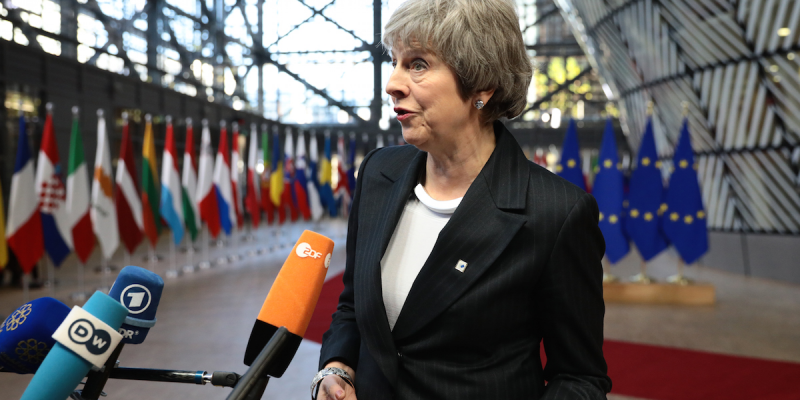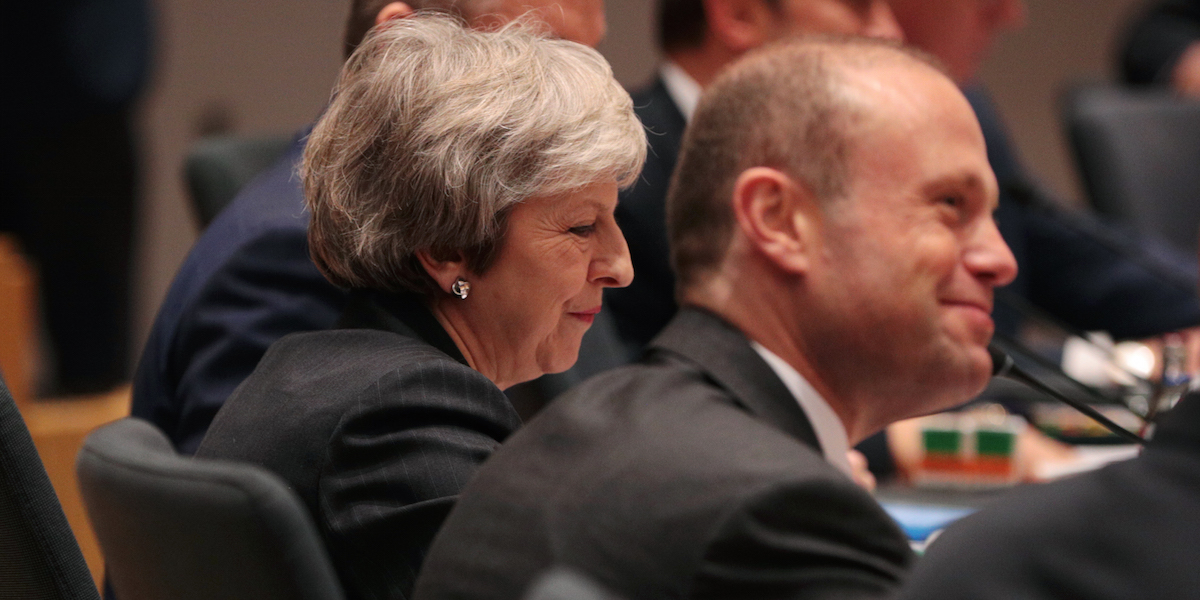- Theresa May bruised in Brussels after EU leaders reject her plan to make legal changes to the Brexit deal.
- “We don’t want the UK to think there can be any form of renegotiation, that is crystal clear,” the EU’s Jean-Claude Juncker said after European leaders met with May on Thursday evening.
- The UK prime minister wanted the EU to make legally binding assurances on the duration of the backstop.
- However, the EU refused. “You cannot put a fixed date in writing,” Dutch Prime Minister Mark Rutte said.
- UK government sources claim the EU’s private messages to May were more encouraging.
- May insists that meaningful clarifications from the EU are “in fact still possible.”
LONDON – Theresa May’s request for new concessions from Brussels were firmly rejected by EU leaders on Thursday evening, putting her on a collision course with MPs in Westminster.
The prime minister asked EU leaders in Brussels to “hold nothing in reserve” and make legal changes to the Withdrawal Agreement, specifically on the backstop for the Irish border, which would make it more palatable for UK MPs.
However, rather than win changes to the deal, May’s requests led the EU to harden its position.
"We don't want the UK to think there can be any form of renegotiation, that is crystal clear," European Commission President, Jean-Claude Juncker, said at the end of the first day of the European Council summit.
"We can add clarifications, but no real changes. There will be no legally binding obligations imposed on the Withdrawal Treaty."
He then publicly chastised May's approach to negotiations, after reports that German Chancellor Angela Merkel interrupted the meeting of EU leaders to ask May to be clearer about what she wanted from them.
"Our UK friends need to say what they want, instead of asking us to say what we want," Juncker said.
"We would like within a few weeks our UK friends to set out their expectations for us, because this debate is sometimes nebulous and imprecise - and I would like clarifications."
May wanted the EU to make legally binding reassurances that the backstop for avoiding a hard border on the island of Ireland would be temporary by including a fixed target date of December 2021 for a new UK-EU free trade deal.
This was designed to allay concerns of Brexiteers in Westminster that if activated, the backstop would keep the UK trapped in the EU's customs union indefinitely, stuck with EU rules and a limited ability to sign new trade deals.
The Democratic Unionist Party, which props up May's government, also hates the current terms of the backstop because it would create new border checks between Northern Ireland and the rest of the UK.
However, May's proposals were roundly rejected. "You cannot put a fixed date in writing," Dutch Prime Minister Mark Rutte told reporters outside the Council building in Brussels last night. EU leaders also removed from their draft statement a pledge to "examine whether any further assurance can be provided" in a sign that they would not budge.

Unless EU leaders unexpectedly change their minds on Friday morning, May will return to Westminster without the changes she had promised to the pro-Brexit MPs who tried to get rid of her in a no confidence vote on Tuesday.
The embattled prime minister told hostile Conservative MPs that she would secure "legally binding solutions" for the backstop as part of her pitch to them on why they shouldn't vote to ditch her as leader and prime minister.
Speaking in a press conference on Friday afternoon, May dismissed reports that EU leaders were unwilling to give her reassurances on the backstop, insisted that "further clarifications" were "in fact still possible."
One UK government source told Business Insider that the EU's private statements to May had been more positive.
"She managed to get some quite strong wording on the temporary nature of the backstop," a Cabinet source told BI.
However, looking ahead to when MPs hold a so-called meaningful vote on the Brexit deal, set to take place in January, they added: "I doubt very much it's enough to win the vote."
EU leaders also refused to approve a special European Council summit in January to ratify a potentially revised Brexit deal after May failed to convince them that it'll be able to get through UK Parliament next month.

